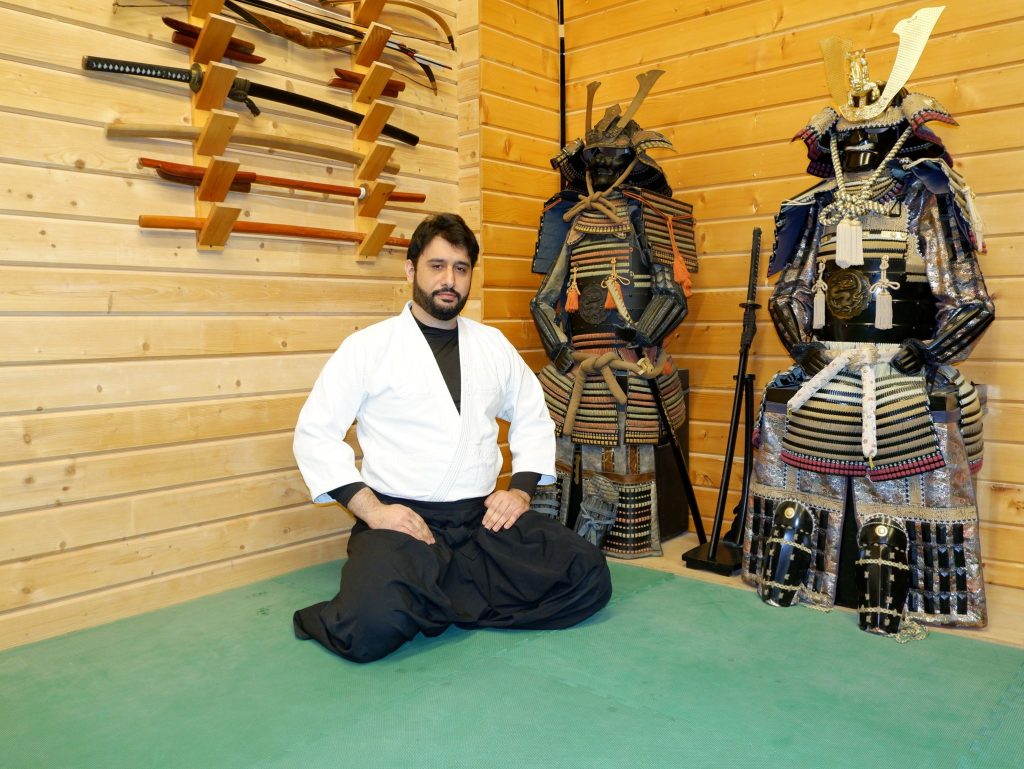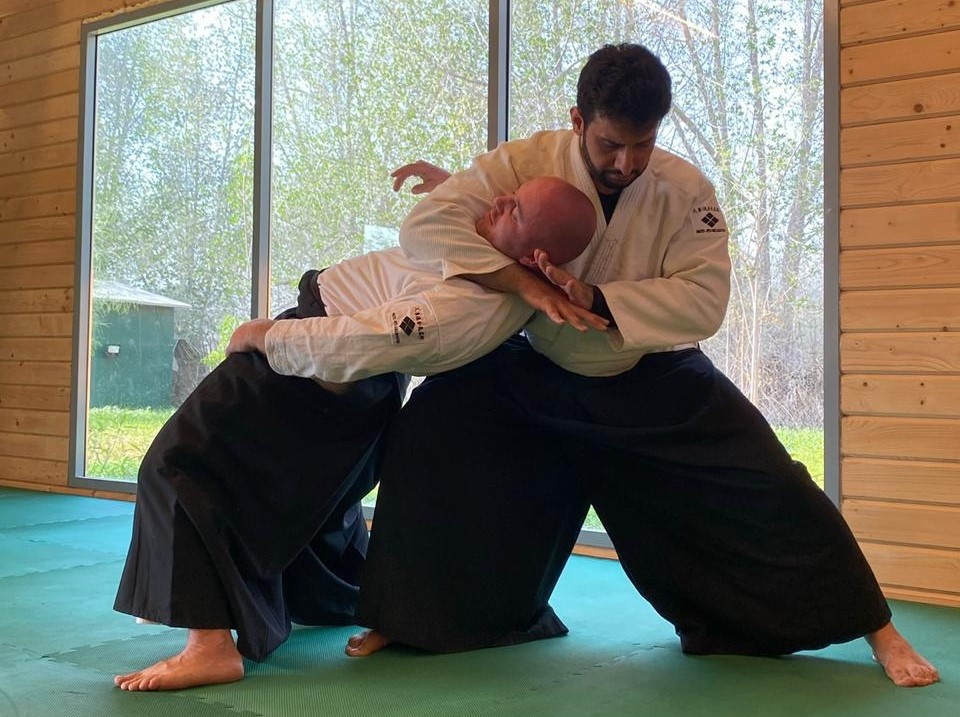



Amin Abbas
Bushikan Dojo, a licensed Daito Ryu Aikijujutsu branch in Ajman city in the UAE, teaches Daito Ryu martial art.
Daito Ryu Aikijujutsu is a form of jujutsu, a system of unarmed fighting and minor weapons techniques to defeat both armed and unarmed opponents. It is noted, as the name suggests, for emphasizing the principles of Aiki (some aspects of Aiki are also referred to as Kuzushi).
The Daito Ryu technical tradition includes both Jujutsu and Aikijujutsu, but a clear distinction is made between the two and the emphasis is strongly on the latter.
From ancient times the admonishment to “attack where the opponent has been unbalanced” has been a fundamental axiom of Asian martial arts. In Daito Ryu, the principle of “how to unbalance the opponent” is referred to as Aiki, and a great many of the tradition’s oral transmissions and secret teachings pertain to the various aspects of Aiki.
Daito Ryu goes beyond mere self-defense, offering the way to temper one’s body and spirit, with the aim of developing personal character and contributing to the greater social good.
In an interview with Arab News Japan, Majed Salem Al Hammadi, founder of Bushikan Dojo Ajman said establishing the Dojo was a way to dedicate it exclusively to Daito Ryu.
“Bushikan used to be the name of my old dojo, which focused on different Japanese marital arts,” he said.
“It’s always a struggle to find people who are really into the Japanese culture, old Samurai arts or (Ko Ryu) are not popular among people who are interested in martial arts, because it need patience and require people who are familiar with Japanese culture, understanding the deep philosophy behind it, from Zen (meditation) all the way to Kokyu (breathing) and Zanshin (to remain in guard always and stay focused). Therefore, just the selected ones have long breath in these arts,” he added.
Al Hammadi explained that he had a childhood filled with Japanese history and culture, “derived from video games, childhood anime and the books and articles” he used to read.
“A local Aikido sensei named Adel Al Ali is the first real sensei I used to learn under and was my inspiration and motivation for traditional Budo for Japanese martial arts,” he added.
About the establishing of his career in practicing Japanese martial arts, Al Hammadi said: “Since my childhood at the age of 10, I started learning Karate in a nearby dojo, from there I decided to get deep in the Japanese martial arts philosophy. When I started learning Aikido at the age of 17 that was the motivator to have more focus in all Bushido arts, understanding the deep philosophy and the essence behind it helped me progress in my training, so in 2016 I decided to understand the roots of Aikido and the linage of this rich martial art. Daito Ryu is not just a martial art, it’s a way of life.”
About the challenges that he faced during his career in Japanese martial arts, Al Hammadi said: “Frequent travel to Japan, understanding the etiquette behind it, Kondo sensei (head of Daito Ryu) supervision and instructions was not easy to co-op with. Continues training at sensei’s Dojo.”
Speaking of his travels to Japan, Al Hammadi said: “My first trip to Japan was in 2006, I covered many places in Japan from North to South, a total of 18 trips so far, and recently favoring a small Valley called Hakuba in Nagano prefecture, which I bought a land there.”
“The Japanese people and culture are something from different world, I admire the culture and the respectful people in Japan, its free lessons to all nations to learn and apply in daily life,” he added.